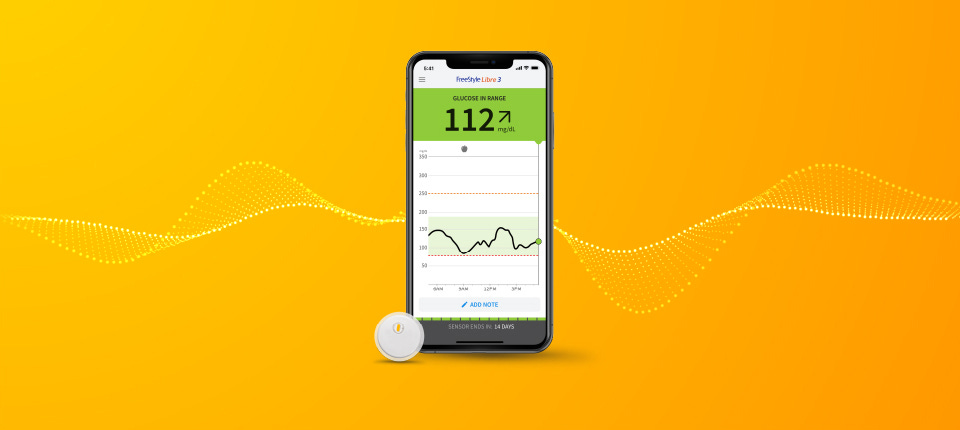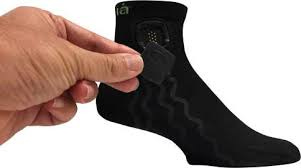Top 5 Wearable Devices Revolutionizing Health Care!
"Health Tech Innovations: Wearable Devices and Apps Shaping the Future of Health"
Future is here! If you grew up like me in the early 80s and 90s, you might have noticed minimal health resources. Fast-forward to the US and current trends in healthcare tech are mind-boggling. As innovation drives us toward a futuristic and healthier lifestyle, we’re here to embrace it. In my pursuit of longevity, I found these 5 latest health tech wearables helpful.
Continuous Glucose Monitoring
Oura Ring, Apple Watch, Whoop Strap, Garmin, FitBit, and more
Lumen
Muse S
Sensoria fitness socks
CONTINUOUS GLUCOSE MONITORING…
A Continuous Glucose Monitor is a wearable device that tracks real-time blood sugar levels by measuring glucose in the interstitial space beneath the skin. Until recently, if one is on insulin, blood sugar levels were checked by pricking the fingers, sometimes 3-4 times a day, by a point-of-care glucometer. However, since the devices started in the last few years, the management of diabetes significantly changed for the better. It is a tiny sensor inserted under the skin, a transmitter that sends data, and a receiver or smartphone app for monitoring.
I am very aggressive on metabolic health as this is easily reversible in the early stages, especially with new devices, life style modifications and medications. It couldn't be a better time to have these devices handy to help diagnose, treat, and manage diabetes. I couldn't be more optimistic about diabetes. More and more newer technology is being developed for metabolic health, which could cause significant morbidity in the last decade of life.
SMART WEARABLES…
Oura Ring, Apple Watch, Whoop Strap, Garmin, FitBit, and other health wearables are creating a health tech buzz. They are constantly evolving with the power of Artificial Intelligence. The apps and wearables they power generate an unprecedented amount of health data, providing users with valuable insights into their well-being. As a physician, the sheer volume of data can be overwhelming, but in the world of health monitoring, more data is always better than less.
Most Wearables Track many parameters some of them listed below:
1. Sleep and sleep quality
2. Heart rate
3. Body temperature
4. Blood oxygen
5. EKG
6. Fall detection
7. HRV (A higher HRV indicates a healthy autonomic nervous system (ANS), better stress resilience, and improved cardiovascular function.)
8. Stress
9. VO2 max (VO₂ Max is the maximum amount of oxygen your body can use during intense exercise). Higher VO₂ Max is linked to longevity, metabolic flexibility, and reduced risk of heart disease.
10 Respiration METABOLIC TRACKER- LUMEN…
The metabolic tracker Lumen has created a lot of buzz by identifying metabolic efficiency by analyzing the CO2 levels in the breath. It helps determine whether your body primarily burns carbohydrates or fat for fuel by providing real-time insights into metabolism. Tracking these fluctuations enables lifestyle modifications, diet, exercise, and intermittent fasting routines for improved metabolic health, weight management, and energy levels. It's beneficial for individuals looking to enhance fat adaptation and metabolic efficiency.
https://www.lumen.me/
BRAIN ACTIVITY WEARABLE - MUSE S…
The Muse S Brain Activity Wearable is a smart headband designed to track brain activity, heart rate, and breathing patterns in real-time, using EEG (electroencephalography) technology. It provides guided meditation, sleep tracking, and biofeedback to help users improve focus, manage stress, and enhance sleep quality. By measuring brain wave activity, Muse S offers personalized insights and audio cues to train the mind for better relaxation and cognitive performance, making it a powerful tool for mindfulness, stress reduction, and sleep optimization.
https://choosemuse.com/
GAIT ACTIVITY TRACKER - SENSORIA SOCKS
Sensoria Smart Socks are high-tech wearables embedded with textile sensors that track real-time foot pressure, gait, and running form. Designed for athletes, runners, and individuals recovering from injuries, they provide detailed insights into step count and landing impact, helping users prevent injuries and optimize performance. The socks, when paired with a companion app and an AI-powered virtual coach, offer personalized feedback, showing that your unique needs are being met to improve foot strike efficiency and running technique. They are also valuable for diabetic patients at risk of foot ulcers by detecting abnormal pressure patterns early.
https://www.sensoriahealth.com/sensoria-socks
These are some of the early tech and wearables innovations in healthcare. I have used wearables and continuous glucose monitors in the practice. I have worn the CGM and tested the glucose monitoring. As we head into the future, many health gadgets start to emerge. We are heading towards the onslaught of new tech in health care. The changes in diabetes we are seeing are unbelievable. A few decades ago, diabetes was a miserable disease; now, with the improvisation of metabolic parameters and CGM, the disease is well-managed, and complications have declined. The future of health gadgets will only increase exponentially in the coming days and years. I see many healthy octogenarians and nonagenarians in my office, and with emerging technologies, people can live as healthy centenarians and beyond.
Suman Manchireddy MD, FACP
Internal Medicine,
Leesburg, VA.
Email: Care@ReliantMD.com
Disclaimer: This is for purely informational and educational purposes only. Seek medical advice before starting any testing or treatment regimen. The data presented here has been extensively researched and condensed for a broader audience, and it should be viewed for educational purposes only. The blogger or blog has no affiliation with any pharmaceutical company.








After further consideration of this post, why isn't continuous glucose monitoring made available to everyone and not just to diabetics? I believe, this feedback would assist everyone in cutting back on their consumption of unhealthy food and drink and choices. In lieu of that, I will explore the various offerings mentioned here and see how accurate they truly are. I remember back when they first introduced fitness trackers. Folks thought they all accurately measured "steps walked" when in fact, with some of them, all you had to do was wave your arm around and it clocked "steps". I'm looking for accurate measurement, as is anyone who is putting in the time and research to improve their lifestyle and longevity.
Thank you for this summary.